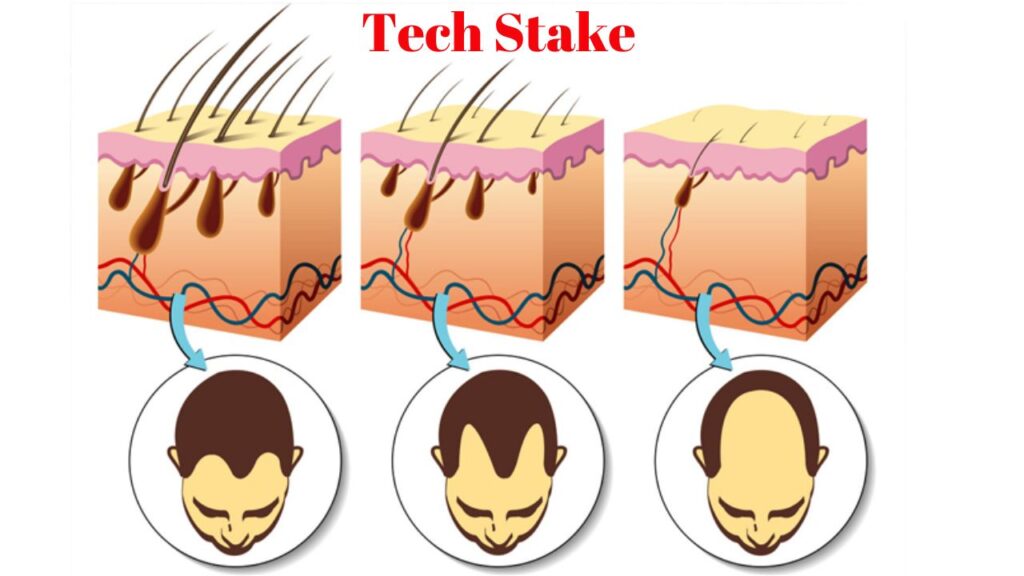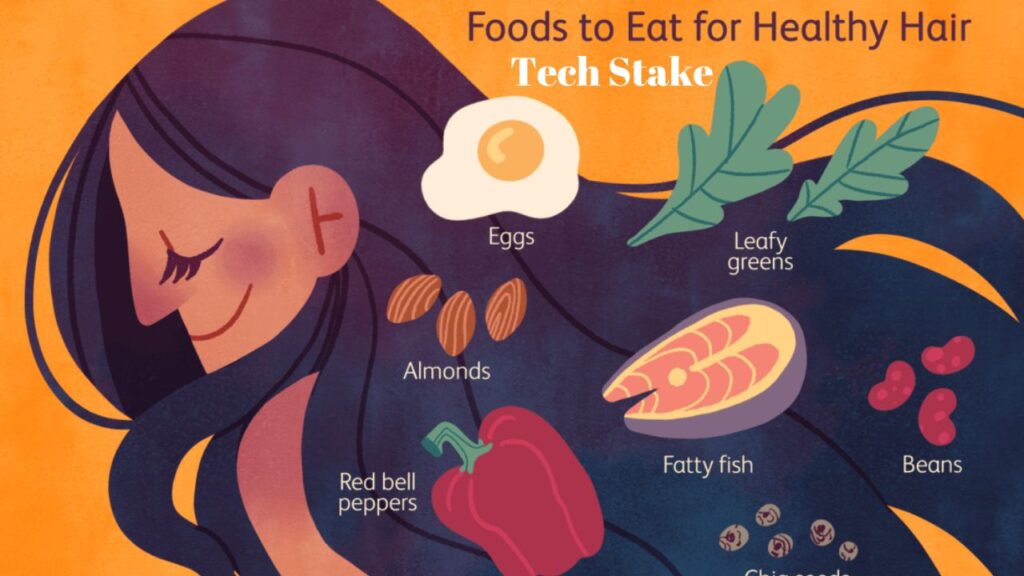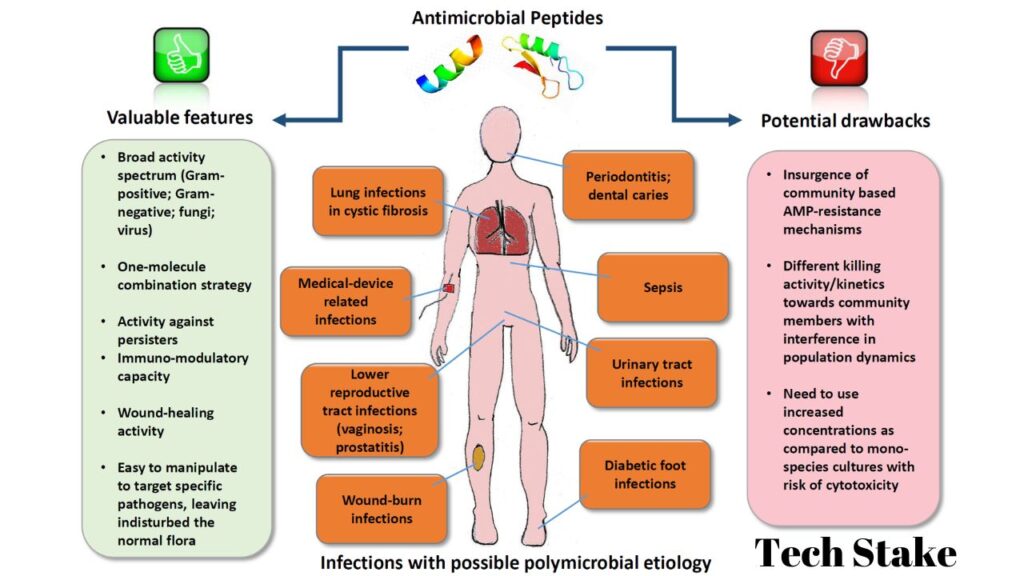Hair loss affects millions of people globally, leading to emotional distress and decreased self-esteem. Thinning hair can result from various factors, including genetics, hormonal changes, and environmental stressors. Understanding these causes is essential for finding effective treatments.
Recent studies indicate that nearly 50% of men and 40% of women experience noticeable hair loss by the age of 50. This staggering statistic highlights the need for effective solutions and therapies.
Understanding Peptides: The Basics
Peptides are short chains of amino acids that serve as the building blocks of proteins. They play a vital role in numerous bodily functions, including hair growth. Their ability to signal cellular activity makes them particularly valuable in treating hair loss.
Key Points
- Peptides consist of 2 to 50 amino acids.
- They can influence numerous biological processes, including cell regeneration and wound healing.
How Peptides Function in the Body
Peptides function by binding to specific receptors on cell surfaces, triggering various biological responses. This signaling can enhance cellular repair, stimulate growth, and promote overall health. Their role in hair follicle health is crucial for preventing hair loss and promoting regrowth.
Mechanism of Action
- Stimulate growth factors.
- Enhance collagen and elastin production.
- Improve blood circulation to the scalp.
Role of Copper Peptides in Hair Growth
Copper peptides have gained popularity for their positive effects on hair health. They are known to stimulate hair growth by increasing follicle size and blocking the formation of DHT, a hormone linked to hair loss.
Benefits of Copper Peptides
- Increased Hair Thickness: Promotes fuller hair.
- Enhanced Follicle Health: Supports overall scalp health.
- Anti-Inflammatory Properties: Reduces scalp irritation.
The Connection Between DHT and Hair Loss

Dihydrotestosterone (DHT) is a hormone derived from testosterone that can bind to hair follicles, leading to their deterioration. This process results in miniaturization of hair follicles and ultimately hair loss.
DHT and Hair Loss Statistics
| Gender | Percentage Affected |
|---|---|
| Men | 50% |
| Women | 30% |
How Peptides Promote Hair Growth
Peptides assist in hair growth by supporting hair follicles, enhancing blood circulation, and reducing inflammation. They create a conducive environment for hair to thrive.
Key Mechanisms
- Follicle Size Increase: Thicker, stronger hair.
- Stimulated Growth Phases: Encourages new hair production.
Benefits of Using Peptides for Hair Health
Using peptides for hair health offers numerous advantages:
- Non-Invasive Treatment: Safe and effective.
- Minimal Side Effects: Well-tolerated by most individuals.
- Supports Overall Scalp Health: Promotes a healthier environment for hair growth.
Peptides vs. Traditional Hair Loss Treatments
Traditional treatments, such as minoxidil and finasteride, have their limitations. While they can be effective, they may also cause side effects. Peptides provide a safer alternative with fewer adverse reactions.
Comparison Table
| Treatment Type | Effectiveness | Side Effects |
|---|---|---|
| Peptide Therapy | High | Minimal |
| Minoxidil | Moderate | Skin irritation, itching |
| Finasteride | High | Sexual dysfunction |
Combination Therapies for Enhanced Results

Combining peptide therapy with other treatments can lead to better outcomes. Therapies such as red light therapy and PRP microneedling enhance the effectiveness of peptides.
Peptide Therapy and Red Light Therapy
Red light therapy employs low-level wavelengths to stimulate hair growth. This treatment enhances blood circulation, allowing for better nutrient delivery to hair follicles.
Benefits of Combining Therapies
- Increased Hair Growth: Results in thicker hair.
- Improved Scalp Health: Promotes a healthy environment for hair follicles.
Exploring PRP Microneedling for Hair Restoration
PRP microneedling involves using a device to create tiny punctures in the scalp, followed by applying platelet-rich plasma. This technique stimulates hair follicles and improves overall scalp health.
Advantages of PRP Microneedling
- Deeper Penetration of Treatments: Enhances effectiveness of peptides.
- Stimulates Natural Growth Factors: Encourages hair regrowth.
The Importance of a Healthy Scalp
A healthy scalp is essential for optimal hair growth. Maintaining scalp health can significantly enhance the effectiveness of hair loss treatments, including peptides.
Tips for Healthy Scalp Care
- Regularly cleanse the scalp to remove build-up.
- Use gentle shampoos and conditioners.
- Avoid excessive heat styling.
Lifestyle Changes to Support Hair Growth
Incorporating healthy lifestyle changes can further support hair growth. Here are some effective strategies:
Recommended Lifestyle Adjustments
- Balanced Diet: Focus on nutrients that promote hair health.
- Regular Exercise: Improves blood circulation to the scalp.
- Adequate Sleep: Supports overall health and recovery.
Nutritional Factors for Healthy Hair

A well-balanced diet plays a crucial role in hair health. Ensure your diet includes the following nutrients:
- Protein: Essential for hair structure.
- Vitamins: Including A, C, D, and E support hair growth.
- Minerals: Zinc and iron are vital for follicle health.
Stress Management Techniques for Hair Health
High stress levels can lead to hair loss. Managing stress is crucial for maintaining hair health. Here are some effective techniques:
Stress Reduction Strategies
- Meditation: Helps calm the mind and reduce anxiety.
- Yoga: Promotes relaxation and improves overall well-being.
Understanding Individual Responses to Peptide Therapy
Individual responses to peptide therapy can vary based on numerous factors, including genetics, the severity of hair loss, and overall health.
Factors Influencing Results
- Genetic Predisposition: Affects hair growth patterns.
- Consistency of Treatment: Regular application is key.
Potential Side Effects of Peptide Treatments

While peptide treatments are generally safe, some individuals may experience mild side effects. These can include:
- Localized Irritation: Temporary redness or itching.
- Allergic Reactions: Rare but possible.
READ THIS BLOG ALSO : Kelly Reilly Cleft Lip – Fact or Speculation?
Is Peptide Therapy Right for You?
Peptide therapy offers a promising solution for those experiencing hair loss. However, it’s essential to consult with a healthcare professional to determine if it’s suitable for your specific needs.
Considerations Before Starting Treatment
- Medical History: Discuss any pre-existing conditions.
- Treatment Goals: Define what you hope to achieve.
Common Questions and Solutions
How Long Does It Take for Peptides To Work on Hair Loss?
Most individuals see improvements after 3 months of consistent treatment.
Are There Any Side Effects or Risks Associated with Peptide Therapy for Hair Growth?
Peptide therapy is generally safe, but potential side effects will be discussed before treatment begins.
Is Peptide Therapy Suitable for Everyone?
It is safe for most, but pregnant or breastfeeding women should consult a professional first.
How Often Should I Receive Peptide Therapy for Hair Loss?
Typically, one session a month for 4-6 months is recommended, with maintenance as needed.
Final Words
Peptides for hair loss present a promising and effective solution for those seeking to combat thinning hair and promote regrowth. Their ability to enhance scalp health and stimulate hair follicles makes them a valuable option. By combining peptide therapy with a healthy lifestyle and complementary treatments, individuals can work towards achieving their hair goals.
With patience and consistency, peptides may be the key to unlocking healthier, fuller hair. Explore the world of peptides today and take the first step towards restoring your confidence and self-image.

SEO expert focused on boosting online visibility and driving organic traffic. Passionate about data analysis, strategy, and the latest digital marketing trends.















